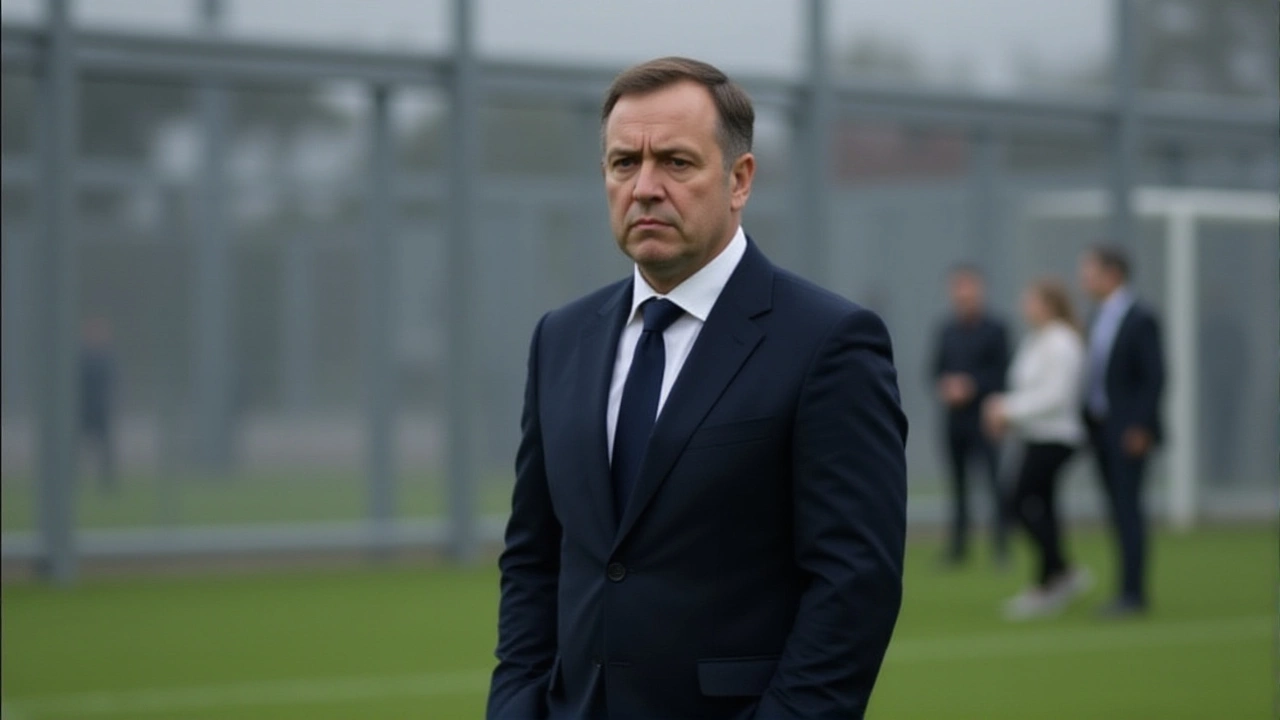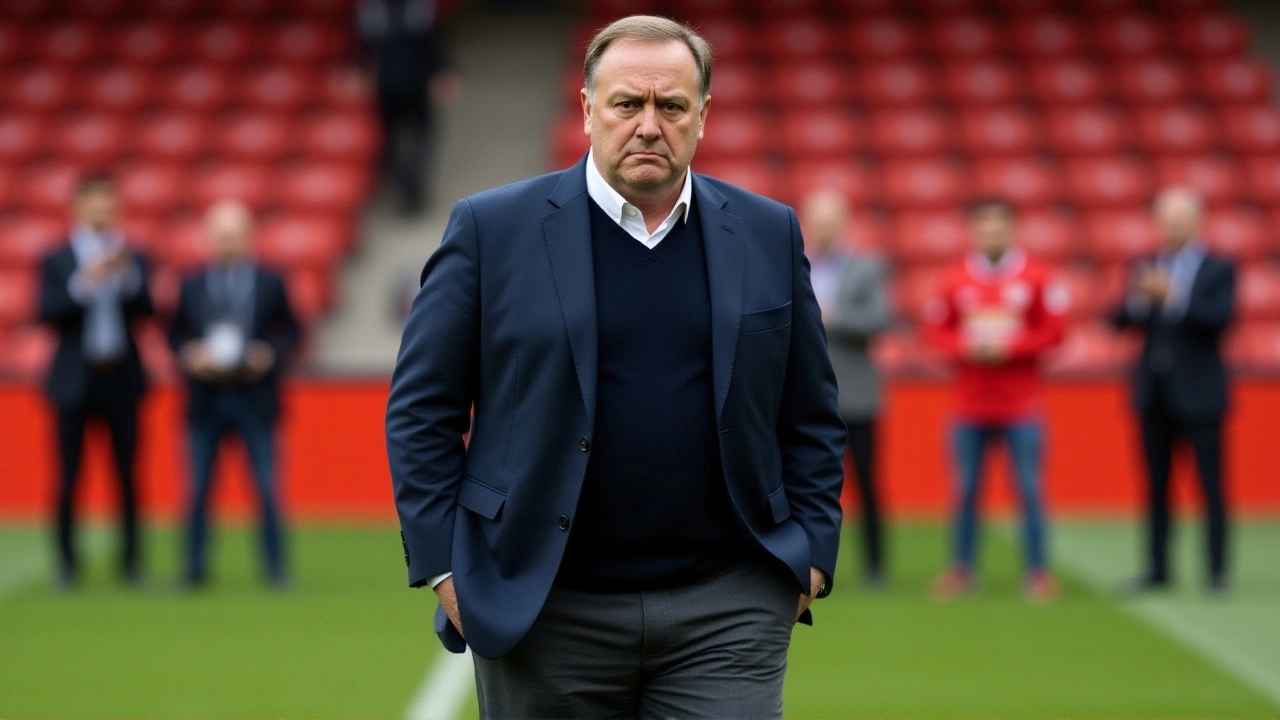When Dick Advocaat walked out of the Stadium of Light on October 3, 2015, he didn’t know it would be his last walk as manager of Sunderland AFC. The next morning, at 9:00 AM UTC, the club confirmed what many had suspected: Advocaat, 68, had resigned — not because he was fired, but because he believed the team needed a fresh voice to survive. His departure came after eight Premier League games without a win, leaving Sunderland rooted in 19th place with just five points. The twist? He’d already made the decision before the 2-2 draw with West Ham United — but stayed on to avoid the chaos of a midweek sack.
Why He Left — And Why It Mattered
Advocaat didn’t just quit. He chose to leave with dignity. In his statement, he didn’t blame the players, the board, or the fans. Instead, he said: “I feel it is the right time to do this — not for me, but for the club.” That’s rare in modern football. Most managers wait to be pushed. Advocaat pushed himself. He’d been hired in March 2015 to save Sunderland from relegation, and he did — securing safety on the final day. He then announced his retirement. But by June 4, he reversed course, signing a one-year deal. He brought in familiar faces: Jeremain Lens, his former PSV winger, and Fabio Borini, the striker he’d once overseen on loan. It looked like a masterstroke. Then the season started.Eight games. Zero wins. Six draws. Three losses. Only one victory all season — a 6-3 thrashing of Exeter City in the League Cup, a match that barely counted in the bigger picture. The Premier League table told the story: Sunderland had more draws than any other team, but no momentum. They were the league’s most passive side, winning just 11% of their points. Fans grew restless. The press turned skeptical. And Advocaat, ever the stoic, knew the truth: this team needed more than tactics. It needed belief. And he wasn’t sure he could give it to them anymore.
A Manager Who Walked Away — Again
This wasn’t Advocaat’s first exit under pressure. Back in 2001, he resigned from Rangers F.C. while leading the Scottish Premier League by 12 points. Back then, he cited personal reasons. This time, it was about timing. He’d seen this movie before. In Russia, he took a struggling national team to the 2008 Euros. In South Korea, he led them to the 2006 World Cup quarterfinals. He knew how to rebuild. But Sunderland in October 2015? It was a mess of underperforming stars, fractured confidence, and a fanbase on the edge. He didn’t want to be the man who dragged them down.“I’m thankful to the chairman for understanding my feelings,” he said. That chairman — Ellis Short, the American owner since 2009 — responded with grace: “I respect him for his honesty.” Short’s words mattered. In a league where managers are often treated as disposable, this felt different. Advocaat wasn’t fired. He was let go with honor.
The Ripple Effect
His assistant, Zeljko Petrovic, left with him. That meant no continuity. No safety net. Sunderland had to find a new manager — fast. With 19 games left and only eight points from eight matches, they were three points from the drop zone. The clock was ticking. The club’s Twitter account, @SunderlandAFC, confirmed the news with a single line: “Dick Advocaat has left his position as head coach with immediate effect.” No fanfare. No ceremony. Just cold, hard reality.What followed was a scramble. The club considered names like Steve Bruce and Steve McClaren. They eventually hired David Moyes — a man who’d been sacked by Manchester United just months earlier. A risky move. But one that made sense: Moyes had Premier League survival in his DNA. Advocaat had done the hard part — keeping them up last season. Now, someone else had to keep them alive this time.

Advocaat’s Legacy at Sunderland
His 19-match tenure — from March 17 to October 4, 2015 — wasn’t long. But it was layered. He inherited a team that had just survived relegation on goal difference. He brought in players who knew his system. He didn’t change the squad overnight. He tried to stabilize. And when the results didn’t come, he didn’t scream. He didn’t blame the media. He didn’t point fingers. He simply walked away.That’s the quiet dignity of a veteran. He didn’t need to win. He needed to protect the club. And in that, he may have done more than any manager who won five games.
What’s Next for Sunderland?
The search for a new manager began immediately. With only eight points and 19 games left, the margin for error was razor-thin. The club’s survival hinged on finding someone who could ignite a turnaround — quickly. The fans, once hopeful, were now anxious. The Premier League had no mercy. And the winter transfer window was still weeks away.Advocaat’s departure didn’t just leave a vacancy. It left a question: Could Sunderland avoid the drop without him? The answer, as it turned out, was yes — but barely. Moyes led them to safety by the slimmest of margins: 10th place, 14 points above the drop zone. But that’s another story.

Advocaat’s Career: A Quiet Giant
From 1988 to 2015, Advocaat managed clubs and national teams across four continents. He won league titles in the Netherlands, Scotland, and Russia. He coached the Dutch national team through Euro ’92. He led South Korea to their historic 2002 World Cup run. He was a tactician, not a showman. He didn’t need headlines. He needed results. And when the results stopped, he stepped aside — even if it meant walking away from a one-year contract, even if it meant leaving behind players he’d recruited, even if it meant facing criticism for quitting too soon.He didn’t owe Sunderland anything. But he gave them something rarer than a win: integrity.
Frequently Asked Questions
Why did Dick Advocaat resign after only eight Premier League games?
Advocaat resigned because Sunderland had gone winless in their first eight Premier League matches of the 2015-2016 season, leaving them in 19th place. Though he’d saved the club from relegation the previous season, he believed the team needed a new voice to spark a turnaround. He chose to leave early to give the club time to find a replacement before the pressure mounted further.
What was Advocaat’s record at Sunderland AFC?
Over 19 matches in total — including the final 11 games of the 2014-2015 season — Advocaat recorded four wins, six draws, and nine losses. His only win in the 2015-2016 campaign was a 6-3 League Cup victory over Exeter City. In the Premier League, he managed eight games with zero wins, five draws, and three losses.
Who replaced Dick Advocaat as Sunderland’s manager?
David Moyes was appointed as Sunderland’s new manager on November 11, 2015, after a month-long search. Moyes, who had previously managed Manchester United and Everton, led the club to safety in 10th place, finishing 14 points clear of relegation — a remarkable turnaround after Advocaat’s winless start.
Did Advocaat leave on bad terms with the club?
No. Both Advocaat and chairman Ellis Short emphasized mutual respect. Advocaat praised the club’s staff and supporters, and Short called his decision “honest.” Assistant coach Zeljko Petrovic also departed amicably. There were no public disputes, no accusations — just a quiet, professional exit.
How did Sunderland’s fans react to Advocaat’s resignation?
Reactions were mixed. Many fans understood his decision, recognizing the team’s poor form and lack of confidence. Others were frustrated, feeling he should have fought harder. But there was no widespread anger. His calm demeanor and past success in saving the club earned him lingering respect, even among critics.
What made Advocaat’s management style unique?
Advocaat was known for his disciplined, structured approach and preference for familiar players — often recruiting those he’d previously managed, like Jeremain Lens. He valued tactical consistency over flashy signings. Unlike many modern managers, he rarely gave emotional press conferences. His strength was in quiet leadership, and his departure was a reflection of that: no drama, just duty.
